|
Blame Brexit
I predicted last month that the May column would be late in
arriving. This, of course, was due to the fact that we would have left Europe
on B-Day at the end of March. Like everyone who promised a painless Brexit, I
was lying.
From the Newsroom
There is a long and distinguished history of journalists
writing thrillers. Gerald Seymour (one himself) famously said that after
Frederick Forsyth’s Day of the Jackal, ‘it should be part of a journalist’s knapsack
to have a thriller’, but there were plenty of earlier examples: Duncan Kyle,
Alan Williams, Hammond Innes, Ian Fleming and many more since.
This month sees three thrillers from experienced news
reporters in television and radio, all dealing with events close to recent
headlines.
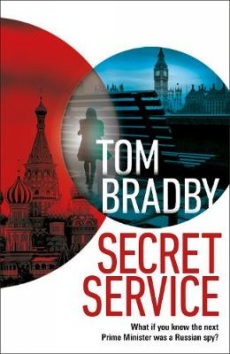
The tag-line to Secret Service (Bantam) by ITN
anchorman Tom Bradby proposes the question What
if you knew the next prime minister was a Russian spy? To which the rather
cynical answer might be ‘I wouldn’t be at all surprised’; but it is a real
problem for rising star of MI6 Kate Henderson who is tipped off to the prospect
whilst eavesdropping on a conclave of Russian spies. Or is it a set-up, a
classic piece of disinformation by Russians wanting to mess with our heads and
democratic processes? (Brexit seems to have done that job for them quite
thoroughly.)
Whilst hunting the truth, and mindful of inter-service
rivalries, Kate Henderson realises there is also a mole inside MI6 (when is
there not?), all the time juggling a complicated, but not untypical, family
life comprising surly teenagers, husband and a mother suffering dementia, and
surviving some explosive violence along the way.
If the identity of the mole is not that difficult to fathom,
Tom Bradby does an excellent job of squeezing the tension out of the day-to-day
business of spying and the domestic life of a female intelligence officer and
the novel, unusually for a traditionally masculine genre, is populated by a
large number of well-drawn female characters. Kate’s mother in particular is a
wonderfully bitter figure and the family repartee, raddled with black humour,
is priceless as well as probably realistic.
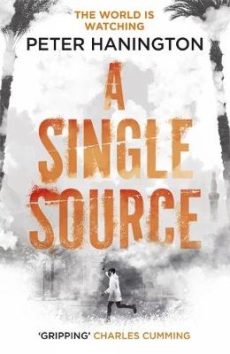
In days of yore, or at least back in the last century,
critics and reviewers were fond of talking about ‘the difficult second novel’ and
a much over-used phrase was used in review columns to celebrate when a new
author had ‘jumped the second novel hurdle with ease’. Eric Ambler cheerfully
debunked this tradition when he told the story of his own agent lecturing him
on the subject thus: ‘Most writers have
problems with their second book, sometimes with their third. You were lucky,
you had all your problems with your first!’
Which is a long-winded way of saying that BBC radio
journalist Peter Hanington has had absolutely no problem with his second
thriller, A Single Source, published by Two Roads this month. In fact, I
think it superior to his debut A Dying Breed and although I know it
is dangerous to offer new writers too much praise or alcohol, I recount the
Eric Ambler story because whilst reading A Single Source, I was constantly
thinking that had he been around in this century, it would have been just the
story the old master would have wanted to tell.
Hanington’s old-school journalist hero William Carver is in
Cairo in 2011 and all his newshound senses tell him that the Arab Spring is
about to get sprung on Egypt and so secures local sources to enable him to
follow the events in Tahir Square and the peaceful uprising fuelled by social
media that was to prove neither peaceful nor ultimately successful. But being
ahead on that international news story is not enough for Carver as he has
sniffed out another involving illegal arms shipments by British companies,
possibly under political protection from Whitehall.
In parallel with this narrative is a truly heart-breaking
story of two Eritrean migrants hoping to get to Italy, who embark on that
modern Via Dolorosa across
sub-Saharan Africa in the far from tender care of people smugglers. How the two
narratives combine to give Carver more than just a single source for his story
is ingenious and, dare I say it, rather Ambler-esque.
A Single Source is a
considered, almost deceptively suspenseful thriller with a host of well-drawn
characters, including hard-bitten foreign correspondents, young idealistic
Egyptian girls, creepy public relations men, a grotesque (and totally credible)
arms-dealer and a wonderfully slimy Cairo hotelier. It is written by a
journalist whom you feel has been there and done that – or at least some of it
– with skill and humanity, and no unnecessary pyrotechnics.
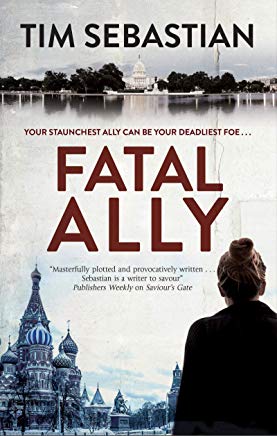
I am also looking forward to Fatal Ally by Tim
Sebastian, which is published at the end of the month by Severn House. Sebastian, a veteran television
journalist and the former BBC correspondent in both Washington and Moscow,
knows his stuff and his contemporary spy story revolves around a betrayed
defector, American skulduggery, internal Russian conflicts and the current
nightmare that is Syria.
Just over a year ago in an on-stage interview with Dame
Stella Rimington, the former head of MI5, we tried to think (but failed) of
other female fictional spies to compare with her creation Liz Carlyle. Now two
come along in the same month: Tom Bradby’s Kate Henderson and Tim Sebastian’s
Margo Lane.
Books of the Month
Several years ago Peter Guttridge moved over to the Dark
Side, switching from comedy crime thrillers to more straightforward murder
mysteries set in the new homicide capital of England, Brighton.
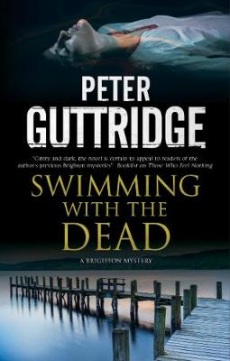
Swimming With The Dead,
published by Severn House, is the sixth in Peter’s ‘Brighton Series’ featuring
his ensemble cast of police detectives, this time with DI Sarah Gilchrist
taking the lead, able assisted (where would she be without him?) by her
sergeant with the wonderfully Dickensian name, Bellamy Heap.
Although Brighton and its environs are clearly the focus of
all villainy (the book even name checks the crime writing of Peter James),
Guttridge has never been reluctant to spread the action and there are side-bars
here in Scarborough, Edinburgh, the Lake District and Thailand, justifying the
title that nowhere near open water is safe. In Swimming With The Dead,
terrible things happen to hard-core open water swimmers (swimming the Channel
is almost seen as something for wimps) and Guttridge lists the potential
dangers facing them (apart from homicide) with glee.
I had no idea that going for a quick dip at the seaside or
down the local lido could be so dangerous; and I also learned, though it has
nothing to do with swimming, what Peyronie’s Disease is, without the horror of
having to Google it.
As always, Guttridge’s prose is clear and unfussy and there
are occasional flashes of the acerbic wit – especially during a Twittersphere
spat between extreme sportsmen – which characterised his much-missed Nick
Madrid series when he was in comic-crime mode.
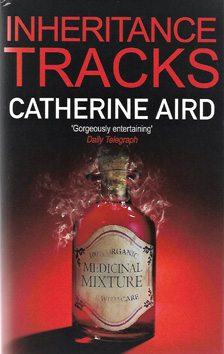
They might say there’s no such thing as a British ‘cosy’
murder mystery any more, but they’d be wrong. Catherine Aird has been writing
them for more than four decades, even inventing her own county – Calleshire –
as a backdrop to the investigations of Detective Inspector C. D. (naturally
known as ‘Seedy’) Sloan and his sidekick DS Crosby who is, with the best will
in the world, not the sharpest drawing-pin in the police stationery store.
Inheritance Tracks,
from Allison & Busby, is her latest Calleshire saga, though I do miss the
county map which used to come with her earlier titles, and centres on the
provisions of a will dating from the 1850s by the inventor of Mayton’s Marvellous
Mixture, an immensely profitable Victorian tonic elixir of virtually no
medicinal value. Where there’s a Will, or in this case a complicated Trust,
there is usually a murder or two to thin out the possible recipients and poison
seems to be a popular method.
However cosy and comforting this sort of traditional mystery
may seem, never forget that Catherine Aird really does know her way around a
dispensary and the uses and abuses of ergot or St Anthony’s Fire (and its
relative, LSD). She also, along the way, explains a significant plot point in
John Galsworthy’s The Forsyte Saga
and gives one reason why Soames Forsyte was often in a bad mood, though I am
sure there were others.
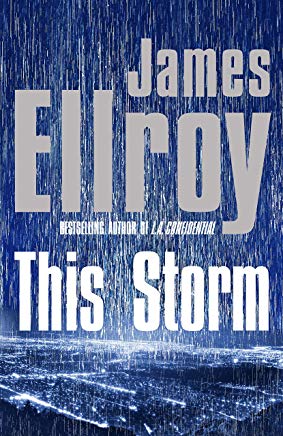
I did so want to enjoy James Ellroy’s Perfidia when it came out
five (five?) years ago, but was worn
down by the author’s relentless, rapid-fire delivery of an over-long narrative
in the clipped, pared-down prose style he has made his own. Not surprisingly,
the second instalment of his new ‘L.A. Quartet’, This Storm from Heinemann,
poses many of the same problems.
Starting where Perfidia left off at the end of
1941, This Storm gives a bigger role to Hideo Ashida, the
Japanese-American forensic chemist working for the LAPD, which naturally is
dominated by Dudley Smith. The plot involves the internment of
Japanese-American citizens, war profiteering, a gold bullion heist, Japanese
submarines threatening the west coast (shades of Spielberg’s 1941 – that wasn’t funny either), Nazi
infiltration into South America and a fascist Catholic movement in Mexico.
Convoluted to say the least, and many a reader will be put
off trying to connect the loose ends by the prospect of wading through 500+
pages of self-indulgent Ellrovian prose, which is a pity as there is clearly a
good novel in here somewhere, totally swamped by the pretentiousness.
As the glorious sunlit uplands of a Brexit Britain still
elude us – though the situation may have changed by the time I finish this
sentence – crime novels from Scandinavia are still slipping through tariff-free
and two are worthy of note.
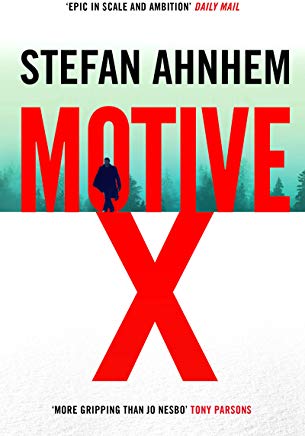 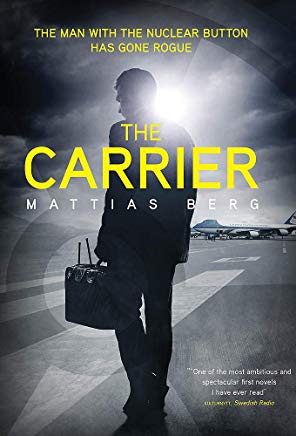
Stefan Anhem has already been labelled the ‘true heir to
Stieg Larsson’ though that should not be held against him. His latest novel,
the 500+ page Motive X from Head of Zeus, shows why he has won the accolade
of Swedish Crime Writer of the Year, with its setting – the medieval city of
Helsingborg, a troubled detective with the rather cool name of Fabian Risk, a
shocking opening piece of violence (against a woman, naturally) involving a
fishing line and a shovel, an epidemic of random murders, a smattering of sex,
a touch of cross-dressing, drugs and a close encounter in a jacuzzi.
The Carrier by Mattia
Berg, from MacLehose Press, is, unusually, an international thriller ranging
across America, Europe and, of course, Sweden. I don’t really know why I said
‘unusually’ as I’m sure lots of good end-of-the-world-jeopardy thrillers are
written by Swedes, but we are programmed to think in terms of ‘Scandi-noir’
murder stories. The Carrier in question is the man who carries the nuclear
briefcase for the American President, but the real question is who is he taking
his orders from and what happens if he decides to disappear?
There is much fascinating background on the history of
nuclear weapons including ‘the most
macabre mathematical experiment ever to be carried out’ at Hiroshima and
Nagasaki and the moral questions are not shirked. There is also a fabulous
description of the ‘gigantic sortie’ which makes up a Presidential visit to
Sweden with an ‘entourage worthy of the Sun King himself’ on board Air Force
One and five other identical Boeings from Andrews Air Force Base – something
which will have a certain Swedish teenage climate change campaigner chaining
herself to the school railings again.
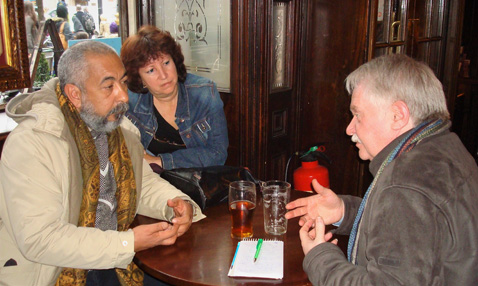
It is ten years since I met Cuban crime writer Leonard
Padura and his wife in London to celebrate the publication here of his Havana
Fever, the follow-up to his Havana Quartet of thrillers featuring
police inspector Mario Conde.
Whilst writing his internationally acclaimed quartet, Padura
developed a story set in the run-down Barrio
Chino - basically Havana’s Chinatown – but felt it did not quite fit the
narrative arc of his quartet, and so published it, in Spanish, as a novella in
2011.
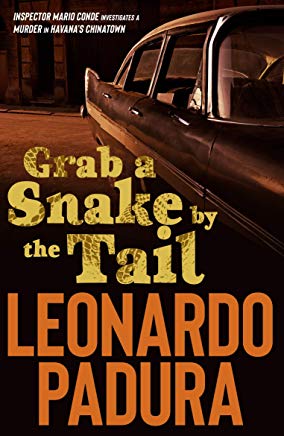
Finally, Grab A Snake By The Tail is
published in English by Bitter Lemon Press, who have championed Padura from the
start. If the idea of a Chinese community in Cuba seems odd or unusual, I would
refer readers to Ernest Hemingway’s 1937 novel To Have And To Have Not with the caveat that his descriptions of
non-white characters is far from politically correct these days.
|
|
Books of Last Month
I received John Connolly’s new 700+page blockbuster A Book of Bones (Hodder) too late to tell readers of the April column that Charlie Parker and his back-up team of Angel and Louis have returned and are on an international, and very bloody, quest in search of the missing pages of The Fractured Atlas, a book of unspeakable evil – though I think I’ve heard that description applied to one of mine before now…
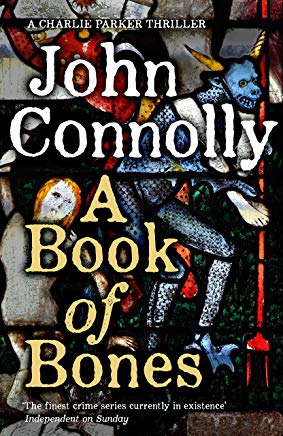
Worth the price of admission alone is an afterword by John Connolly celebrating the twentieth anniversary of his debut chiller Every Dead Thing and his career to date in the field of gothic supernatural crime fiction that he has mostly made his own, though there are now some new kids on that spooky noir block. I was particularly taken with his story of how at signings, fans would plead with him to protect his subsidiary characters, especially one of his hero’s faithful guardians. He claims that ‘Whatever you do, don’t kill Angel’ is the most frequent comment he gets at public events, and I can relate to that.
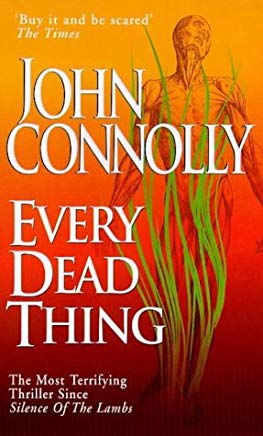
John also mentions his early worries over the reaction of reviewers to that first novel, of which I seem to still have a bound proof copy from 1999. I cannot trace my review of it at this distance, though I’m sure it was a good one. Certainly the follow-up, Dark Hollow, got five stars in my Daily Telegraph column in February 2000. And I distinctly remember John at one of his book launches (in the days when I got invited to them) publicly acknowledging the encouragement he had received from reviewers, thanking Mark Timlin and myself by name.
Books of Last Century
Speaking of reviews – and 1999, I did manage to retrieve from my large and dusty archive my Daily Telegraph ‘Crime Guide’ published on the 15th May that year.
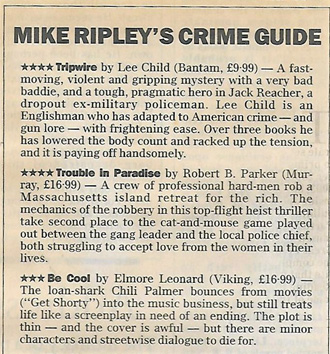
My top three recommendations that month were Robert B. Parker’s Trouble in Paradise, Elmore Leonard’s Be Cool and Lee Child’s Tightrope, about which I noted that over the course of three books, the author had ‘lowered the body count and racked up the tension, and it is paying off handsomely.’ Sadly, Robert Parker and Elmore Leonard are no longer with us. I wonder whatever happened to Lee Child.
That month I also flagged up the first novel Underdogs by Rob Ryan and Own Goals by Phil Andrews, which I thought the funniest (though not the first) football thriller I had ever read, although it was quite a limited field. I also mentioned one novel, saying it was okay, though not quite as good as those by Child, Parker and Leonard, and calling it ‘studiously downbeat’ (not necessarily a bad thing for modern noir fiction). I received a furious letter from the author citing all the good reviews he had received, though it fell short of the traditional death threat which we reviewers are used to.
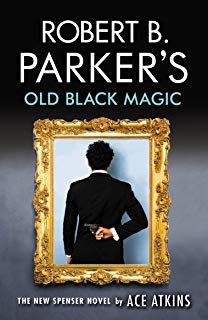
And having mentioned the late Robert B. Parker’s 1999 novel featuring Jesse Stone, I must mention that his most famous creation, Boston private eye Spenser, has recently returned in Old Black Magic (No Exit Press) by Ace Atkins, the continuation author of the series.
Knife Crime
Occasionally the crime fiction reviewer receives a perk in the form of a promotional item accompanying a new title. I have personally been delighted (or perplexed) to have been sent small bottles of ale and wine and very small bottles of whisky, vodka and bourbon (really small, like tiny), a Matchbox toy car, the odd morsel of chocolate, North Korea’s favourite chocolate biscuit, a travelling sewing kit, a small torch on a key-ring and various chips and sticks to fit in electronic devices I do not have.
However, I am delighted to say I have been left off the list of recipients of the latest, rather distasteful promotional item for a new book and, I think, a new author, although some of my senior colleagues – at least three that I know of – who work for national newspapers were not, to their despair and horror.

One has to wonder what sort of idiot promotes his novel by sending out review copies accompanied by a real knife measuring 12” from base to perfectly lethal tip during the current epidemic of knife crime? Or at any time for that matter.
It may be that the novel being promoted features knife crime (and I bet it will be against women), but even so, this is tasteless, insensitive and really quite appalling.
I am glad I was spared such a gift, however useful for cutting avocados, and, of course, have not seen the book it was meant to promote. I know which it is, and who the author is, but I will give neither the oxygen of publicity and as far as I am aware, none of my colleagues who received a knife have actually reviewed or mentioned the book in question. I do hope those bespoke blades were expensive.
A Jessica Farewell
In April, I was honoured to be asked to speak at a wake for Jessica Mann, organised by her four children at the London Library.

It was a daunting task given the audience of several hundred of Jessica’s friends and colleagues from the multiple worlds she inhabited, as a journalist, a feminist, a crime writer, a noted reviewer of crime fiction, an archaeologist, a broadcaster, a planning inspector and member of numerous employment tribunals and NHS committees, as well as being a long-time resident of and advocate for Cornwall.
If nothing else, I hope I made the point that Jessica’s 1981 study of female crime writers of the ‘Golden Age’, Deadlier Than The Male was, and remains, a classic text.
It was certainly a text I drew heavily upon in my lecture to the annual convention of the Margery Allingham Society, when I postulated a few theories on the perception of the ‘thriller’ during the so-called ‘Golden Age’ of English detective novels. The convention week-end, held near Colchester, included trips to the Allingham Archive at Essex University and to Margery’s home for many years in Tolleshunt D’Arcy, as well as talks and seminars on a variety of topics – including running a small museum, self-sufficiency in Victorian London and an algorithm designed to examine the ‘readability’ of certain Golden Age authors. There was also a showing of the 1956 film version of Margery’s most famous thriller Tiger in the Smoke.

Library Find
I have been a regular visitor to the Newsroom at the British Library of late, for reasons which will become all too clear next year, devouring copies of old newspapers on microfiche (being ‘old school’, I just love the squeaks and clatter of the old spools) and in particular, news items for the year 1962. Having reached the month of November 1962, I found myself distracted by numerous issues of the Evening Standard, commencing on Monday the 19th, which began the serialisation of a book which was ‘something new in a form of entertainment that many people thought had nothing new left to say…’
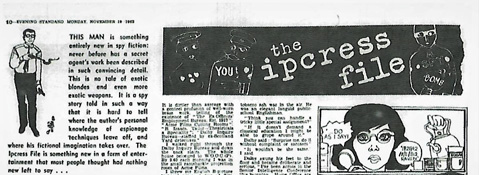
It was the first sight the reading public had of The Ipcress Fileby Len Deighton before the mould-breaking novel was published later that month. It also, if you looked closely, gave the first image of the novel’s anonymous hero who was to be immortalised as ‘Harry Palmer’ in the film with Michael Caine three years later:
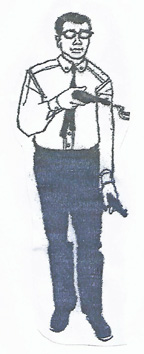
Vintage Corner
At Crimefest this month I will be taking part in a panel discussion on the many legacies crime fiction has left us, appearing alongside a genuine expert on the subject, David Brawn of HarperCollins.
Crimefest and especially this panel could not have come at a more propitious time, coinciding with the publication of a new Desmond Bagley thriller undiscovered for more than forty years.
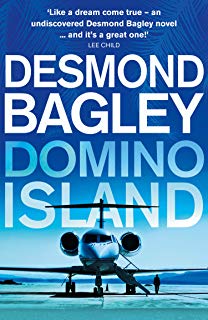
David Brawn was one of the team responsible for bringing Domino Island to a reading public, many of whom will have fond memories of Desmond Bagley’s work and many others who will discover him for the first time. In his heyday, Desmond Bagley, who died in 1983, was one of the world’s leading writers of the adventure thriller, ranking alongside Alistair MacLean and Hammond Innes. The original manuscript of what was to become Domino Island, was completed in 1972 but never published and remained in a Boston archive of the author’s papers until discovered by researcher Philip Eastwood.
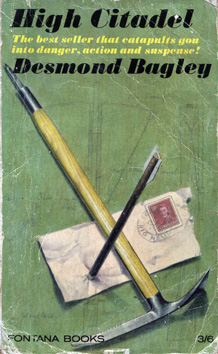 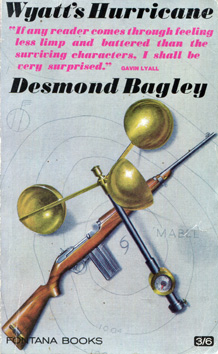
I happen to know it has been a good month of Bagley-fan Philip for other reasons, as he acquired copies of the 1968 paperback editions of High Citadel (my personal favourite Bagley story) and Wyatt’s Hurricane with their vintage cover designs and their nostalgic cover prices.
Paperback in Berlin
I recently received this picture of the famous statue of Karl Marx and Friedrich Engels in the centre of Berlin from a curious tourist who noted something odd lying between Marx’s left elbow and Engels’ right hand.

On closer inspection, an investigative team from SpecSavers has identified the foreign object as the new Telos paperback edition of Angel’s Share though I have no idea whether this heralds the start of a revolution of any sort.
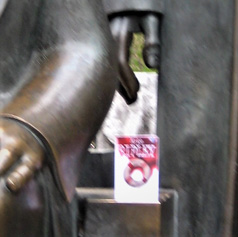
See you in Bristol,

unless I see you first,
The Ripster.
|